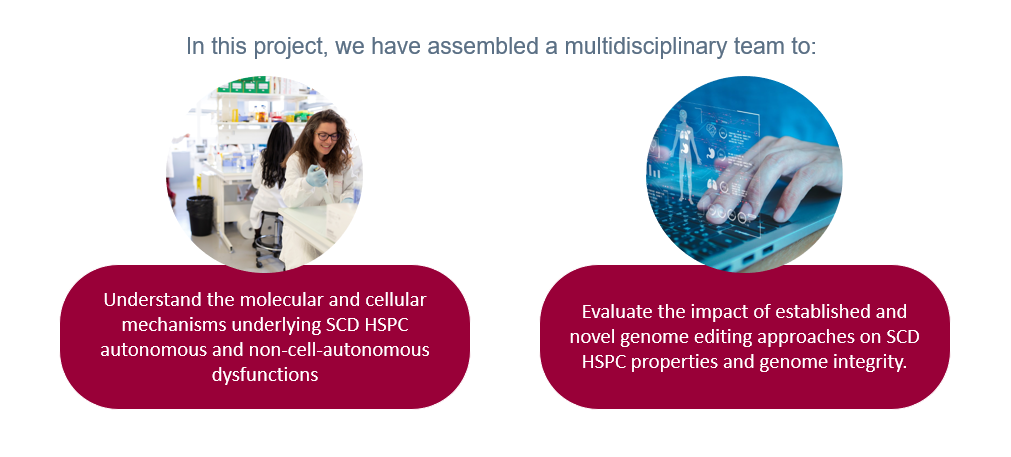General information
Proposal title: Assessing efficacy and safety of genome EDITing approaches for Sickle Cell Disease
Acronym: EDITSCD
Project number: 101057659
Total EC contribution: 6.532.000,00€
Start month: September 2022
Duration: 5 years
Summary of the project
Sickle cell disease (SCD) is one of the most prevalent monogenic diseases in Europe. A single amino acid substitution in the beta-globin chain of the adult hemoglobin (Hb) drives red blood cell sickling and multi-organ damage. The clinical severity of SCD is alleviated by the co-inheritance of mutations causing expression of fetal gamma-globin in adult life, a condition termed hereditary persistence of fetal hemoglobin (HPFH). Transplantation of autologous, genetically modified hematopoietic stem/progenitor cells (HSPC) is an attractive therapeutic option for SCD patients. To this end, genome editing approaches based on the use of site-specific nucleases or, more recently, base editors have been explored by many groups, including teams in our consortium. These approaches either correct the single point mutation causing SCD or reactivate fetal gamma-globin expression by mimicking HPFH mutations. On the other hand, (pre)clinical data from SCD patients or SCD mouse models, as well as preliminary data from our labs suggest that SCD HSPC are characterized by a high mutational burden, oxidative stress and expression of inflammatory genes. This can alter HSPC properties as well as their interactions within the bone marrow niche. In the context of gene therapy, it is essential to understand the mechanisms underlying SCD HSPC dysfunction and assess the impact of genome editing approaches on SCD HSPC.

This study will lay the foundation of an improved gene therapy strategy to treat SCD and provide best practice tools and protocols for genome editing-based therapies in HSPC.


